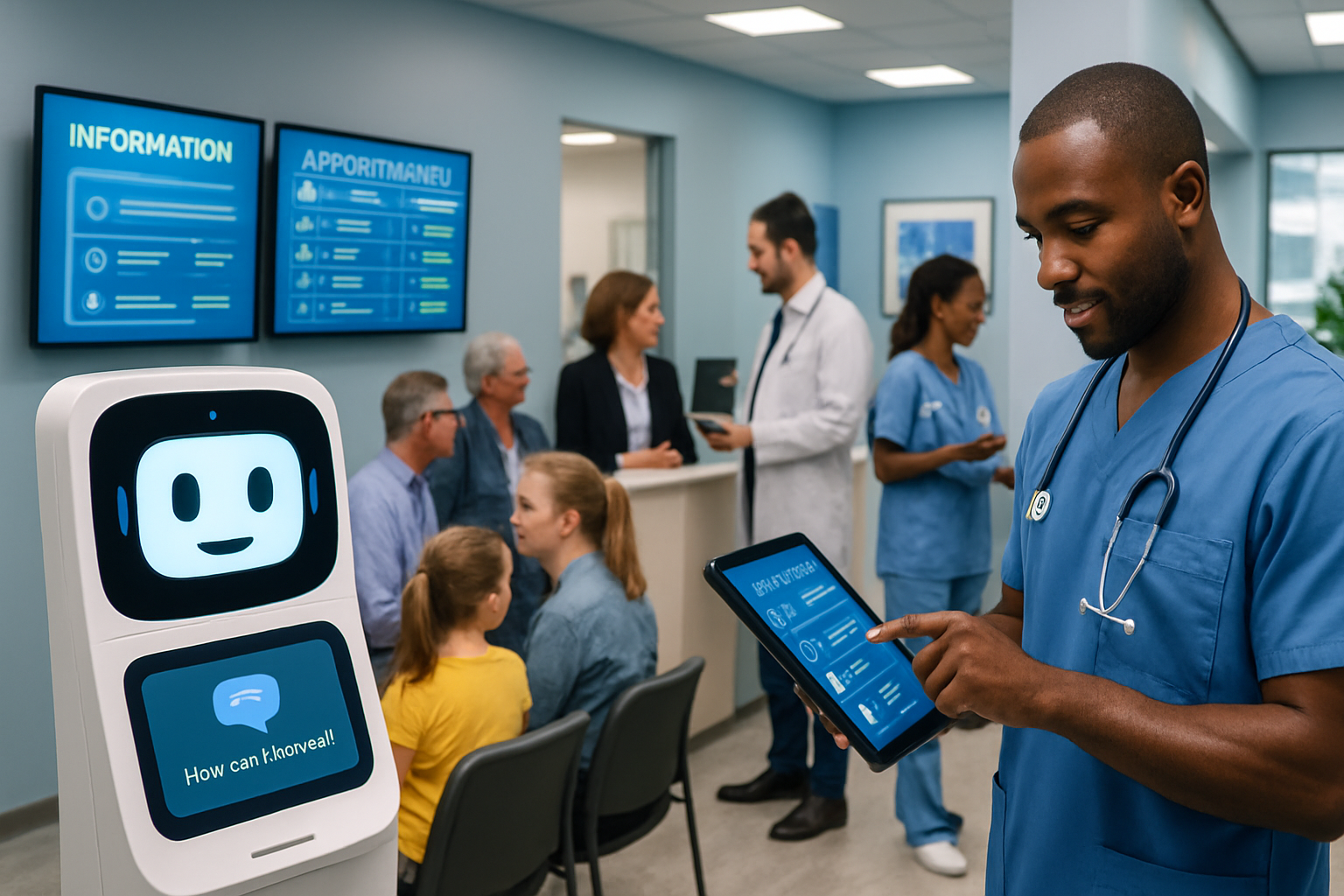Service that suites your needs
Our custom software development process revolves around an AI-centric approach, enhancing user experiences and delivering highly efficient solutions through advanced artificial intelligence technologies.
.png?width=292&height=132&name=Image%20(3).png)
Our custom software development process revolves around an AI-centric approach, enhancing user experiences and delivering highly efficient solutions through advanced artificial intelligence technologies.
.png?width=292&height=132&name=Image%20(3).png)
At Phyniks, we combine AI and creativity to drive innovation. Our tailored solutions yield extraordinary results. Explore our knowledge base for the latest insights, use cases, and case studies. Each resource is designed to fuel your imagination and empower your journey towards technological brilliance.
.png?width=284&height=129&name=Image%20(4).png)
At Phyniks, we combine AI and creativity to drive innovation. Our tailored solutions yield extraordinary results. Explore our knowledge base for the latest insights, use cases, and case studies. Each resource is designed to fuel your imagination and empower your journey towards technological brilliance.
.png?width=284&height=129&name=Image%20(4).png)

Healthcare is at a crossroads. Rising patient demand, staff shortages, and spiraling operational costs are straining hospitals like never before. Traditional systems can no longer keep pace with the expectations of modern care delivery.
Healthcare systems worldwide are under mounting pressure. Consider these numbers:
In this environment, hospitals are turning to AI solutions in healthtech to ease the strain. Among these, AI-powered chatbots and virtual agents are emerging as game-changers. They’re not futuristic add-ons, they are essential infrastructure that supports patient care, optimizes hospital operations, and enhances decision-making.
Chatbots today aren’t just answering FAQs. With RAG solutions in healthcare, they can access vast volumes of structured and unstructured medical data, retrieve patient histories in real-time, and guide clinicians with contextual insights. This shift is redefining what modern hospitals look like.
Hospitals are betting on virtual agents because the business case is undeniable:
But beyond cost efficiency, hospitals are prioritizing AI because these solutions unlock new forms of value from healthcare data**,** something traditional systems often fail to achieve.
AI-powered chatbots in healthtech are no longer simple Q&A bots. They are intelligent conversational systems, often powered by retrieval-augmented generation (RAG) and fine-tuned models that interact securely with hospital data. Let’s explore seven high-impact use cases.
One of the most widespread applications of AI solutions in healthtech is intelligent patient triage. Chatbots equipped with AI data solutions can guide patients through symptom checkers, asking structured clinical questions and mapping responses to medical ontologies (like ICD-10).
By integrating with hospital databases, these virtual agents don’t just provide generic advice. They match patient inputs with historical data, lab results, and known conditions, helping clinicians prioritize cases. For emergency departments, this can mean faster identification of critical cases and reduced wait times.
Traditional scheduling systems are static. By contrast, AI for healthcare data enables dynamic scheduling based on doctor availability, patient preferences, and predicted no-show probabilities. Chatbots can handle rescheduling autonomously, send SMS or app-based reminders, and even optimize slots based on historical attendance data.
Hospitals implementing AI-driven scheduling have reported up to 25% fewer no-shows, directly improving both patient outcomes and financial sustainability.
Post-discharge care often fails due to medication non-adherence, which costs the healthcare system $290 billion annually in the U.S. alone. AI-powered chatbots close this gap.
These virtual agents send personalized medication reminders, flag potential drug interactions based on patient history, and escalate alerts to clinicians when adherence rates fall. With AI data solutions integrating pharmacy records and EHRs, patients receive context-aware support that goes beyond one-size-fits-all notifications.
Revenue cycle management is another area where AI solutions in healthtech are driving transformation. Patients often struggle with insurance eligibility, claim denials, or billing codes. Virtual agents trained on payer databases and hospital financial systems can answer queries, guide patients through insurance forms, and even predict approval likelihoods.
For hospitals, this reduces administrative call center costs while also shortening the revenue cycle, a critical financial lever for sustainable operations.
Hospitals serve diverse populations, but traditional support teams can’t always keep up with linguistic needs. AI-powered chatbots now leverage multilingual NLP models to provide accurate support across dozens of languages.
More importantly, these systems can contextualize medical terminology, ensuring translations are clinically accurate. This builds trust with patients while reducing miscommunication, a critical factor in patient safety.
Perhaps the most transformative advancement is healthcare data retrieval using RAG solutions. Unlike traditional AI, which generates responses based only on training data, RAG combines generative models with real-time retrieval from hospital databases.
This means a virtual agent can:
With this RAG solution in healthcare, doctors don’t need to dig through fragmented EHR systems. Instead, they get a unified view of patient data, enabling faster, safer decisions.
Finally, conversational AI is proving vital in mental health support and long-term patient care. Virtual agents offer patients a safe, always-available channel to express concerns, track progress, and receive guided exercises.
When combined with AI for healthcare data, these systems personalize interactions based on previous sessions, risk scores, or comorbidities. Escalation protocols ensure that critical cases are flagged for human intervention.
One of our recent engagements involved building a RAG solution in healthcare for a leading Irish healthcare provider.
Challenge:
Solution:
We developed a custom AI data solution using retrieval-augmented generation. The system:
This resulted in a significant drop in administrative overheads. Clinicians could retrieve a complete patient history in under 30 seconds. And best part, patient outcomes improved as decisions were made with full data visibility.
This case proves the strategic value of deploying a RAG solution in healthcare and bridges the gap between overwhelming volumes of healthcare data and actionable insights.
Traditional chatbots are limited: they rely on pre-trained responses and cannot access real-time patient data. By contrast, a RAG solution in healthcare augments generative AI with live database retrieval.
For hospitals, this means deploying virtual agents that are both intelligent and trustworthy, two qualities critical in healthtech adoption.
Of course, deploying AI solutions in healthtech is not without hurdles. Hospitals face:
The way forward lies in transparent, explainable AI and phased rollouts. Hospitals that invest in AI data solutions with clear governance frameworks see smoother adoption and faster ROI.
Looking ahead, hospitals will continue to integrate AI chatbots and virtual agents into core systems. Trends to watch include:
The institutions that adopt these innovations early will not only reduce costs but also enhance patient trust and satisfaction.
AI-powered chatbots and virtual agents are no longer experimental pilots, they are becoming core AI solutions in healthtech. From patient triage to insurance queries, from multilingual support to RAG-driven data retrieval, these tools are shaping the next decade of healthcare.
Hospitals that embrace this transformation today will deliver better care tomorrow.
Looking to build custom AI for healthcare data or deploy a RAG solution in healthcare? Let’s create it together.

Sign up for Links for Thinks — a weekly roundup of resources like this to help you uplevel your design thinking straight to your inbox
We'd love to hear from you! Whether you have a question about our services, want to discuss a potential project, or just want to say hi, we are always here to have meaningful conversations.